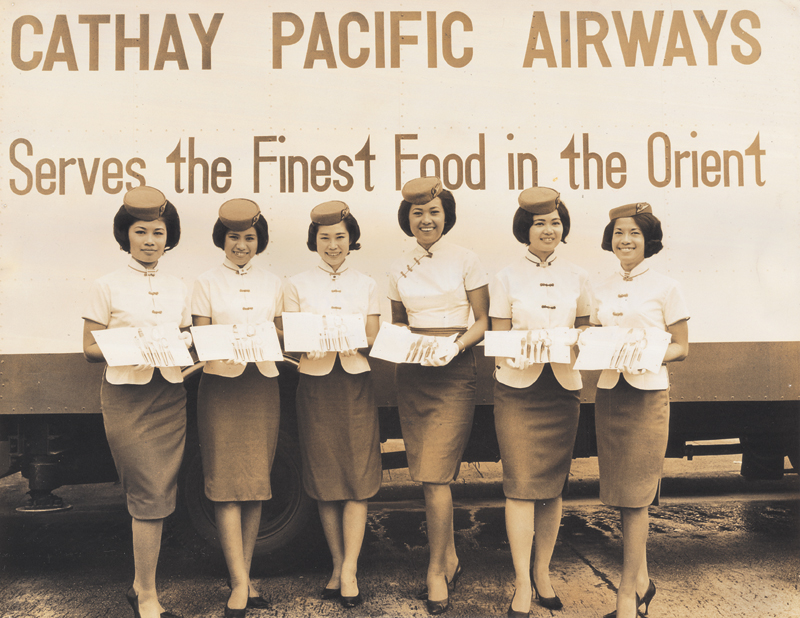
Hong Kong-based Cathay Pacific Airways has been forced to partly back down in a radical cost-cutting push that would have seen the salary and benefits of its pilots and cabin crew slashed. The loss-making airline announced in January that it would be forced to “rethink its workforce” which included significant job losses at the airline.
Cathay Pacific reported a loss of HK$2,051 million for the first six months of the year – a significant change from the HK$353 million profit it made during the same period in 2016. In a statement, the airline said it had been negatively affected by “fundamental structural changes within the airline industry.”
In an attempt to address its issues, Cathay Pacific’s chief operating officer, Rupert Hogg, said it would embark on a radical three-year “transformation plan.” Hogg told staffers in an internal memo that there “will be a big change in the way we do things across the company.” Since then, Cathay has announced plans to cut the salaries and benefits for both pilots and cabin crew.
However, it now looks like the airline has backed down on some of its more radical proposals as it battles staff unions and intense competition from other airlines looking to poach staff. The news agency, Reuters, has reported that a plan by Cathay to axe housing allowances for pilots has been shelved after an uproar from workers.
Housing allowances cost Cathay HK$900 million a year
The allowances, which can apparently be worth as much as HK$100,000 per month for the most senior pilots are set to be extended for at least another 12 months in the face of threats of industrial action. They had been due to end on 29th December. Many expat flight crew fear they would be priced out of the housing market if the cuts were to go ahead.
According to Reuters, the housing allowances cost Cathay HK$900 million a year – in a memo sent to pilots, the airline said it simply couldn’t afford to keep the paying the allowances “given our current financial situation”.
Over the last few months, there has been increasing talk of rapidly expanding mainland Chinese airlines looking to poach Cathay pilots who have seen their pay and perks slashed. In October, the South China Morning Post said Longreach Aviation, a specialist recruitment agency had planned a series of roadshow events in Hong Kong to lure the carrier’s pilots.

Those events, however, were indefinitely postponed after legal advice suggested the recruitment events could actually break Hong Kong law. The newspaper suggested authorities in Hong Kong were deliberately interfering in the recruitment process to stem an exodus of flight crew from Cathay.
Cabin Crew Pay & Conditions
In related news, the Cathay Pacific Airways Flight Attendants Union (FAU) has recently told its members that it has managed to strike a new pay deal for its members. The airline’s cabin crew will receive a 1% pay increase – well below the 3.5% demanded by the union. Cabin crew are also set to receive a bonus of $35,000 or one month’s salary – whichever is lowest.
In a post on the FAU’s Facebook page, the union said they understood the reasons Cathay could not meet its 3.5% pay increase demand, given the “organizational restructure” happening at the airline. But the union said it hoped the airline would “share her success in the future with everybody.”
In September, the FAU concluded a vote on a proposal to increase the retirement age for cabin crew. The union said it hoped an increase in the retirement age would stop age discrimination at the airline – at present, flight attendants are forced to retire at 55 years old.
81% vote for increasing retirement age to 60 years old
81% of cabin crew who took part in the vote agreed with the proposal to increase the retirement age to 60 years old. The union is now working with Cathay to make this a reality.
Cathay Pacific’s Chairman, John Slosar commented: “We do not expect the operating environment in the second half of 2017 to improve materially. In particular, the passenger business will continue to be affected by strong competition from other airlines and our results are expected to be adversely affected by higher fuel prices and our fuel hedging positions.”
“We are addressing the industry challenges through our corporate transformation and by expanding our route network, increasing frequencies on our most popular routes and buying more fuel-efficient aircraft.”
Mateusz Maszczynski honed his skills as an international flight attendant at the most prominent airline in the Middle East and has been flying ever since... most recently for a well known European airline. Matt is passionate about the aviation industry and has become an expert in passenger experience and human-centric stories. Always keeping an ear close to the ground, Matt's industry insights, analysis and news coverage is frequently relied upon by some of the biggest names in journalism.







